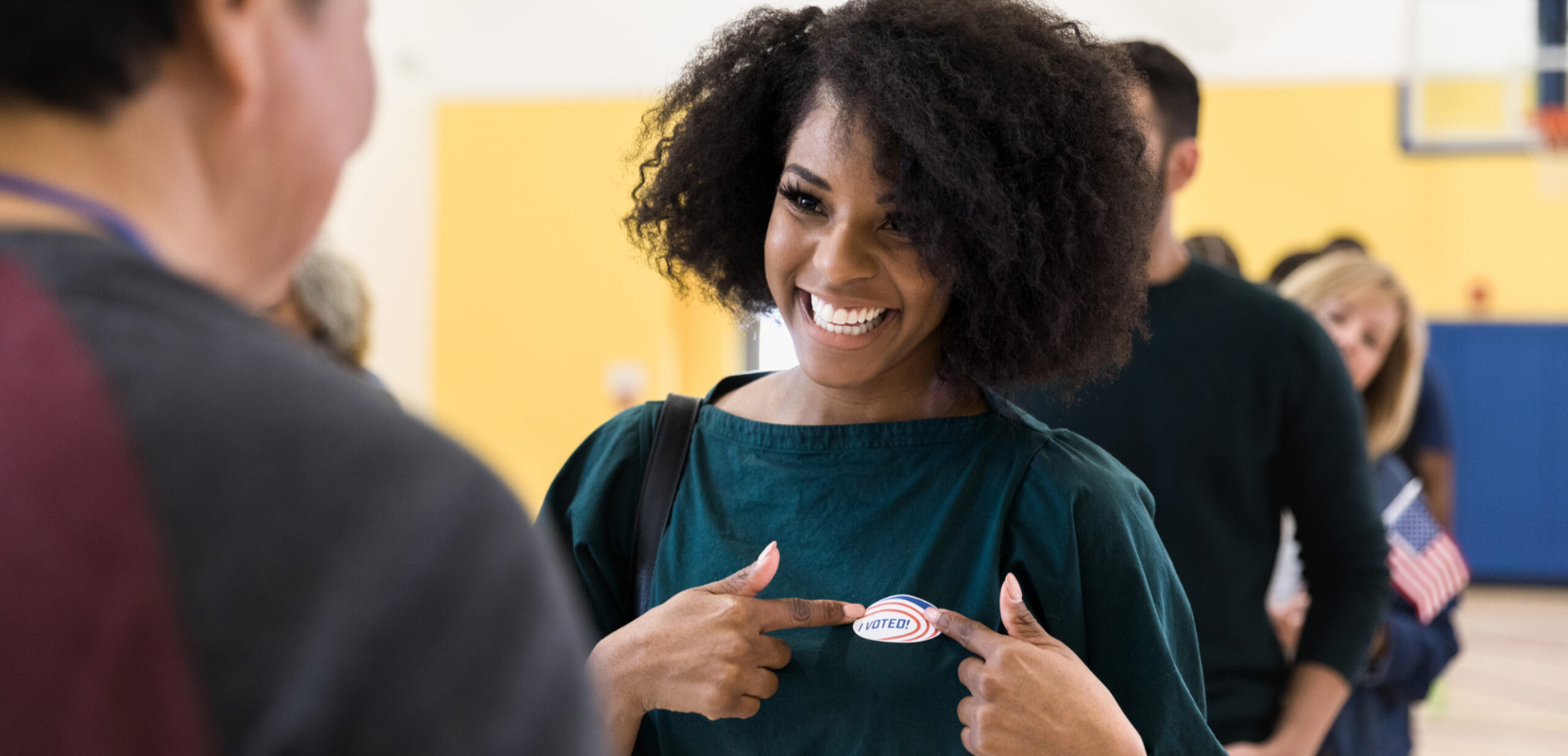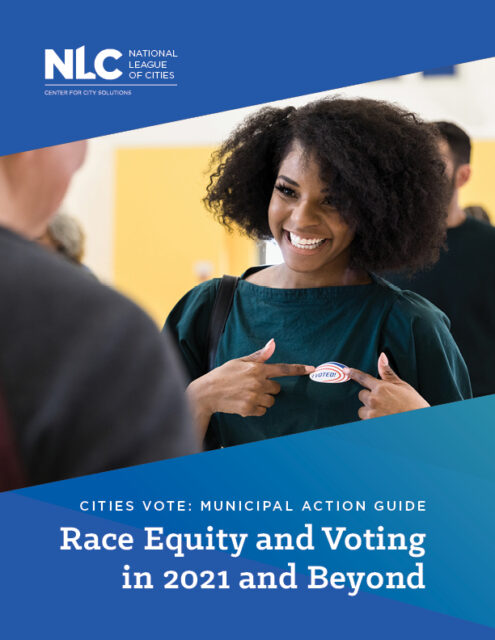Cities Vote: Municipal Action Guide
In this Municipal Action Guide we outline how improving access to the ballot box for Black, Indigenous, Latinx/Hispanic and other people of color benefits all people in a community (the link between civic engagement and thriving cities), the origins of racial voter disenfranchisement and the contemporary ways that it disguises itself now, and the actions city leaders can take to create more equitable elections, including the three ways city leaders have already played a role in addressing the history of racial voter disenfranchisement;
Implement, Advocate & Educate
Cities can implement voting infrastructure that enables accessible, safe and secure elections to all eligible voters with a race equity lens, including ensuring that Black, Indigenous, Latinx/Hispanic and other communities of color have equal access to resources and staff support at poll sites and recruiting election workers who reflect the communities they serve.
City leaders can advocate for better policy to make elections run smoothly and fairly for all residents, including offering the broadest possible range of options for casting a ballot and eliminating or reforming partisan and/or historically inequitable systems of representation.
Finally, city leaders can use a race equity lens to educate all residents on voter registration, provide equitable access to civics education and service learning opportunities and build better relationships with historically disenfranchised communities in collaboration with trusted messengers.

